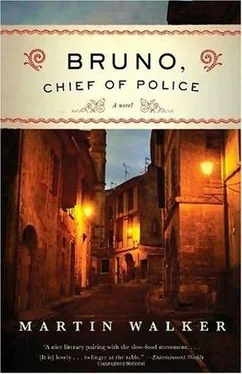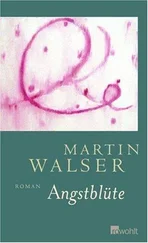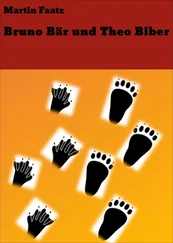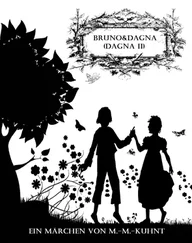Martin Walker - Bruno, chief of police
Здесь есть возможность читать онлайн «Martin Walker - Bruno, chief of police» весь текст электронной книги совершенно бесплатно (целиком полную версию без сокращений). В некоторых случаях можно слушать аудио, скачать через торрент в формате fb2 и присутствует краткое содержание. Жанр: Полицейский детектив, на английском языке. Описание произведения, (предисловие) а так же отзывы посетителей доступны на портале библиотеки ЛибКат.
- Название:Bruno, chief of police
- Автор:
- Жанр:
- Год:неизвестен
- ISBN:нет данных
- Рейтинг книги:3 / 5. Голосов: 1
-
Избранное:Добавить в избранное
- Отзывы:
-
Ваша оценка:
- 60
- 1
- 2
- 3
- 4
- 5
Bruno, chief of police: краткое содержание, описание и аннотация
Предлагаем к чтению аннотацию, описание, краткое содержание или предисловие (зависит от того, что написал сам автор книги «Bruno, chief of police»). Если вы не нашли необходимую информацию о книге — напишите в комментариях, мы постараемся отыскать её.
Bruno, chief of police — читать онлайн бесплатно полную книгу (весь текст) целиком
Ниже представлен текст книги, разбитый по страницам. Система сохранения места последней прочитанной страницы, позволяет с удобством читать онлайн бесплатно книгу «Bruno, chief of police», без необходимости каждый раз заново искать на чём Вы остановились. Поставьте закладку, и сможете в любой момент перейти на страницу, на которой закончили чтение.
Интервал:
Закладка:
Martin Walker
Bruno, chief of police
CHAPTER 1
On a bright May morning, so early that the last of the mist was still lingering low over the great bend in the river, a white van drew to a halt on the ridge over the small French town. A man emerged, strode to the edge of the road and stretched mightily as he admired the familiar view. He was still young, and evidently fit enough to be dapper and brisk in his movements, but as he relaxed he was sufficiently concerned about his love of food to tap his waist, gingerly probing for any sign of plumpness, always a threat in this springtime period between the end of the rugby season and the start of serious hunting. He wore what appeared to be half a uniform – a neatly ironed blue shirt with epaulettes, no tie, navy blue trousers and black boots. His thick, dark hair was crisply cut, his warm brown eyes had a twinkle and his generous mouth seemed always ready to break into a smile. On a badge on his chest, and on the side of his van, were the words Police Municipale. A rather dusty peaked cap lay on the passenger seat.
In the back of the van were a crowbar, a tangle of battery cables, one basket containing new-laid eggs, and another with his first spring peas of the season.
Two tennis racquets, a pair of rugby boots, training shoes, and a large bag with various kinds of sports attire added to the jumble which tangled itself in a spare line from a fishing rod. Somewhere underneath all this were a first-aid kit, a small tool chest, a blanket, and a picnic hamper with plates and glasses, salt and pepper, a head of garlic and a Laguiole pocket knife with a horn handle and corkscrew. Tucked under the front seat was a bottle of not-quite-legal eau de vie from a friendly farmer. He would use this to make his private stock of vin de noix when the green walnuts were ready on the feast of St Catherine.
Benoоt Courrиges, Chief of Police for the small Commune of St Denis and its 2,900 souls, and universally known as Bruno, was always prepared for every eventuality.
Or almost always. He wore no heavy belt with its attachments of holster and pistol, handcuffs and flashlight, keys and notebook, and all the other burdens that generally weigh down every policeman in France. There would doubtless be a pair of ancient handcuffs somewhere in the jumble of his van, but Bruno had long forgotten where he had put the key. He did have a flashlight, and constantly reminded himself that one of these days he ought to buy some new batteries. The van’s glove compartment held a notebook and some pens, but the notebook was currently full of various recipes, the minutes of the last tennis club meeting (which he had yet to type up on the temperamental old office computer that he distrusted) and a list of the names and phone numbers of the minimes, the young boys who had signed up for his rugby training class.
Bruno’s gun, a rather elderly MAB 9mm semi-automatic, was locked in his safe in his office in the Mairie, and taken out once a year for his annual refresher course at the gendarmerie range in Pйrigueux. He had worn it on duty on three occasions in his eight years in the Police Municipale. The first was when a rabid dog had been sighted in a neighbouring Commune, and the police were put on alert. The second was when the President of France had driven through the Commune of St Denis on his way to see the celebrated cave paintings of Lascaux.
He had stopped to visit an old friend, Gйrard Mangin, who was the Mayor of St Denis and Bruno’s employer. Bruno had saluted his nation’s leader and proudly stood armed guard outside the Mairie, exchanging gossip with the far more thoroughly armed presidential bodyguard, one of whom turned out to be a former comrade from Bruno’s army days. The third time was when the boxing kangaroo escaped from a local circus, but that was another story. On no occasion had Bruno’s gun ever been used on duty, a fact of which he was extremely but privately proud. Of course, like most of the other men (and not a few women) of the Commune of St Denis, he shot almost daily in the hunting season and usually bagged his target, unless he was stalking the notoriously elusive bйcasse, a bird whose taste he preferred above all others.
Bruno gazed contentedly down upon his town, which looked in the freshness of the early morning as if le bon Dieu had miraculously created it overnight. His eyes lingered on the way the early sunlight bounced and flickered off the eddies where the Vйzиre river ran under the arches of the old stone bridge. The place seemed alive with light, flashes of gold and red, as the sun magically concocted prisms in the grass beneath the willows, and danced along the honey-coloured faзades of the ancient buildings along the river. There were glints from the weathercock on the church spire, from the eagle atop the town’s war memorial where he had to attend that day’s ceremony on the stroke of noon, from the windscreens and chrome of the cars and caravans parked behind the medical centre.
All looked peaceful as the business of the day began, with the first customers heading into Fauquet’s cafй. Even from this high above the town he could hear the grating sound of the metal grille being raised to open Lespinasse’s tabac, which sold fishing rods, guns and ammunition alongside the cigarettes. Very logical, thought Bruno, to group such lethal products together. He knew without looking that, while Madame Lespinasse was opening the shop, her husband would be heading to the cafй for the first of many little glasses of white wine that would keep him pleasantly plastered all day.
The staff of the Mairie would also be at Fauquet’s, nibbling their croissants and taking their coffee and scanning the headlines of that morning’s Sud-Ouest.
Alongside them would be a knot of old men studying the racing form and enjoying their first petit blanc of the day. Bachelot the shoemender would take his morning glass at Fauquet’s, while his neighbour and mortal enemy Jean-Pierre, who ran the bicycle shop, would start his day at Ivan’s Cafй de la Libйration.
Their enmity went back to the days of the Resistance, when one of them had been in a Communist group and the other had joined de Gaulle’s Armйe Secrиte, but Bruno could never remember which. He only knew that they had never spoken to one another since the war, had never allowed their families to speak beyond the frostiest ‘bonjour’, and each man was said to have devoted many of the years since to discreet but determined efforts to seduce the other man’s wife. The Mayor had once, over a convivial glass, told Bruno that he was convinced that each had attained his objective. But Bruno had been a policeman long enough to question most rumours of adulterous passion and, as a careful guardian of his own privacy in such tender matters, was content to allow others similar latitude.
These morning movements were rituals to be respected – rituals such as the devotion with which each family bought its daily bread only at a particular one of the town’s four bakeries, except on those weeks of holidays when they were forced to patronise another, each time lamenting the change in taste and texture. These little ways of St Denis were as familiar to Bruno as his own morning routine on rising: his exercises while listening to Radio Pйrigord, his shower with his special shampoo to protect against the threat of baldness, the soap with the scent of green apples. Then he would feed his chickens while the coffee brewed and share the toasted slices of yesterday’s baguette with his dog, Gigi.
Across the small stream that flowed into the main river, the caves in the limestone cliffs drew his eye. Dark but strangely inviting, the caves with their ancient engravings and paintings drew scholars and tourists to this valley. The tourist office called it ‘The Cradle of Mankind’. It was, they said, the part of Europe that could claim the longest period of continual human habitation.
Читать дальшеИнтервал:
Закладка:
Похожие книги на «Bruno, chief of police»
Представляем Вашему вниманию похожие книги на «Bruno, chief of police» списком для выбора. Мы отобрали схожую по названию и смыслу литературу в надежде предоставить читателям больше вариантов отыскать новые, интересные, ещё непрочитанные произведения.
Обсуждение, отзывы о книге «Bruno, chief of police» и просто собственные мнения читателей. Оставьте ваши комментарии, напишите, что Вы думаете о произведении, его смысле или главных героях. Укажите что конкретно понравилось, а что нет, и почему Вы так считаете.












